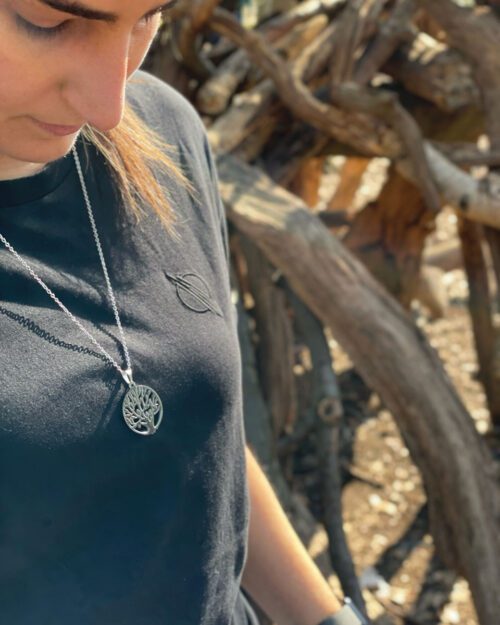It was the Emperor Marcus Aurelius that once wrote “To understand the true quality of people, you must look into their minds, and examine their pursuits and aversions”. This is how I would look into ancient Roman civilization. The heart of the Roman conquest machine lies under an effective and blunt violence and the quest for the glorification of Rome itself.
The first real Roman story begins in a city called Alba Longa founded by the son of the Trojan hero Aeneas, Ascanius. Alba Longa was located at the Latium (future Lazio region in Italy) and overtime became the centre of the region.
As the majority of the civilizations in the ancient world, Alba Longa had violent customs that would sound very cruel in present time.
It all started when king Porcas died and left his two sons Numitor and Amulius. Numitor was the elder son and by law inherited the throne of Alba Longa, succeeding in the long line of the Trojan hero Aeneas as king of the city.
Amulius, the youngest son of Porcas, was too ambitious to be left as a subject of his brother. Power and wealth was much more valuable to him than tradition and respect, so he schemed a coup to take over Alba Longa.
Violently, his plot was successful
He invaded the city and took it to himself. Numitor, his brother, was deposed but that was not enough as Amulius had nephews that could claim the throne one day and, the only solution for that, was to kill all of them. Well, all but one: Rhea Silvia.
As Rhea would never be rightful to succession, she herself would never pose a threat, however she could still have sons. Amulius spared her life, therefore he commanded Rhea to become a Vestal Virgin. This way she should never bear children of her own, consequently would not provoke other pleas for Amulius kingship.
That should be the end for Numitor’s progeny and the ultimate victory to the ambitious Amulius, although that was not the destiny the Parcae had planned.
Rhea Silvia already was a Vestal Virgin for a while when a mysterious man came to her. He was charming, well educated, handsome and massively provocative. Rhea didn’t want to give up her vows as she knew the consequences of disregarding the gods, but the mystery man was too much for her. She then laid with him on that day.
After that, the mysterious gentleman decided to reveal himself and claimed to be Mars, the Roman god of war. He also confessed that Rhea’s breed would exceed all men in bravery, but Rhea was a Vestal Virgin that had just broken her vows to the goddess Vesta.
Vesta was furious and, before she could deploy all her anger over Rhea, the goddess Venus intervened. Venus was the ancestress of Rhea and did not abandon her, protecting the former virgin from the wrath of her fellow goddess, but not from Amulius.
She gave birth to twins and the king, not feeling any sympathy for the infants, condemned Rhea to death and her children were to be cast out in the River Tiber. This was a common practice in ancient Latium. When, for any reason, a person did not want the child, they could abandon them in a public place or just throw them in the river, a practice that was only abolished around 374 AD.
A drop of hope
Amulius’ orders were carried out by the servants. Rhea Silvia, his niece, was no more and the babies were taken to the river banks. Getting there, the servants took another look at the wee ones and decided to give them a little chance. Instead of just letting them drown, they put them into a basket, so they could float and maybe…. MAYBE… have a chance to grow up in peace, away from the king’s wrath.
Fortune was thrown to the two boys. Floating they went on, adrift through the river, but what the servants and the king did forget was that the river had life of its own. The river god Tiberinus heard the story and saw the pity in the servants eyes and decided to intervene on behalf of the twins’ fate taking them to the shore, away from everyone’s sight.
This was when something unexpected happened. A she-wolf that had just whelped approached the helpless children and, rather than killing or eating them, surprisingly gave them to suckle. The reason that this may have happened is unsure, maybe her offspring didn’t come through and she instinctively felt the need to breastfeed the new puppies or perhaps she was sent by the gods to protect them. The truth we will never exactly know.
The she-wolf kept them strong and warm long enough until a shepherd called Faustulus and his wife Larentia found them. Pitting the twins, they adopted both and gave them the names that would echo into eternity: Romulus and Remus.
Romulus and Remus grew up handsome and strong in body and mind, natural leaders amongst their community. Farmers, huntsmen and shepherds respected and acknowledged their genuine leadership until the day their father came up to them in a serious tone, strangely different from usual.
Faustulus had an urgent quality in his voice, maybe deeper and stronger, we do not know. He might not even look like himself. Faustulus started by telling about their adoption, about the she-wolf and who they really were. He told them about Numitor and his mother Rhea, told them about their uncle’s wrath and disregard for their lives. He told everything.
Regarding that, I would like to propose some questions: how should Faustulus, a simple shepherd, know about all these details? Why now, when their sons were adults and all was just fine? Was he really Faustulus or maybe he was their real father, Mars, the powerful god of war that turned into the shepherd’s image to bring his children up to their destiny?
In the end, that didn’t matter because the twins had their father’s blood and that story should not be laid down in peace. Their birthright and the justice with their mother and grandfather should be restored.
Being natural leaders, Romulus and Remus started a revolt against their tyrant uncle.
Everywhere they passed through, they gathered more and more supporters to the cause. Mars’ blood assured them they would never be defeated in battle. They were strong, clever and exceeded all men in bravery and violence when facing the enemy.
The brothers fought and fought, killing soldiers, captains and generals until they could take the usurper Amulius. The belic twins then did not disappoint their father’s nature and killed the now fallen king. Amulius, the tyrant that desired power above everything, should die for his crimes.
Amulius was executed and Numitor, who was still imprisoned, was restored as rightful king of Alba Longa. Romulus and Remus could have taken the city for themselves, but they actually wanted a kingdom of their own. Peace was in sight and all seemed finally well, but we are talking about Rome my friends and blood must flow once more before the end.
Romulus and Remus haven’t decided yet where the new city should be and couldn’t agree on the location. Romulus prefered the Palatine Hill and on the other hand, Remus would rather built it on the Aventine Hill. The only reasonable option at that point was to ask the gods for advice.
The brothers chose to use the augury, an old practice of Roman religion that concerns observing the birds and interpreting omens from their behavior. They did so in a different fashion, Romulus used a crooked staff known as lituus, a proper tool to measure the omens while Remus just had a casual approach, looking at the birds randomly.
For the first time since the end of the rebellion, Romulus had shown more knowledge of the world compared to his brother Remus. That had happened before when, on one occasion, Remus was captured by Alba Longa soldiers and Romulus rescued him. Romulus seemed stronger in mind and more fit to rule, but that was not enough for Remus. History seemed likely to repeat. The difference is that they loved each other, but again, their nature had influence from the Roman god of war, Mars, and defeat would never be acceptable, not even for love.
Remus saw six vultures in favour of the Aventine Hill whilst Romulus saw twelve, setting the heart of the new city at the Palatine Hill. That should be the end of the discussion, but not for Remus, son of Mars.
The bitterness of Remus
Remus got really sour about losing the contest and, consequently, the crown of the new born city. He then started to provoke his brother Romulus so much that the discussion started over again. Things can quickly escalate when two sons of Mars decide to argue and that was precisely what happened.
The mocking became a discussion, the discussion got out of hand and became a fight, and the fight ended up with the sword. That was the moment that would determine everything. Blood was shed everywhere as none of the brothers would give up the fight. They were too strong and too competitive for that, until the moment Remus made a mistake. Romulus, without hesitation and with one faster move than his brother’s, shaped the fate of the new civilization.
Romulus carved his sword into Remus’ flesh. At the end, there would be only one king and neither Remus or Romulus would accept not being it. Remus fell dead, knowing that this should be the only destiny for one of them. They had too much of their father in them.
Griefing or not, Romulus should move forward with his plan. The city was settled in the Palatine, where the Lupercal – the cave they were found by Faustulus and Larentia – was said to be located.
Roma invicta
Later on, Romulus had to name the new born city. This name would haunt the dreams of its enemies forever and would be the synonym of order, pride, conquest and many of the western values until this day. Rome is still the model of architecture, law and behaviour. Many of the European languages are called “Romantic” because they are a variation of the Latin, the language spoken by the Romans. On 21st April 753 BC he baptised the city after himself and it was called Roma (Rome).
All over the years to come, Rome gave asylum to everyone as this was something both brothers decided before the conflict between them. No matter the background, they would find their land in Rome. This actually attracted many men however no women, but this is another battle Romulus, the victorious son of Mars, had to fight. Romulus reigned for many years.
It is said that one day, Romulus was marching with his troops in the field of Mars when a strange storm arose. Thunders and strong winds stroke the land. Suddenly, a dark cloud came from the skies and surrounded Romulus. It was his father Mars taking the king to the heavens to become a god himself.
Looking at Rome’s foundation legend, maybe we can have a better understanding of the ancient Roman behaviour. It’s not every civilization that would highlight such a violent story, with fratricide and kidnaps, but to me that tells me very much how the Romans saw the world and relationships around them. That could explain the many years of civil war until the Pax Romana was established by the first Emperor Augustus. At the end, everything was for the glory of Rome and obviously power. For all the Romans are, conceptually, sons of Mars, descending from Aeneas, hero of the Trojan war, and fed by wolves.
The excellence of the Roman society brought them to the top of the world for a thousand years. All the generals had to fulfill the shoes of their ancestors and specially, the two brothers that raised the city from the ground up to become the massive empire destined to be.
This is the legendary story of the foundation of Rome. The savage hill that became a city; the city that became a kingdom: the kingdom that became a republic; and the republic that became the largest empire the ancient world had ever seen.








